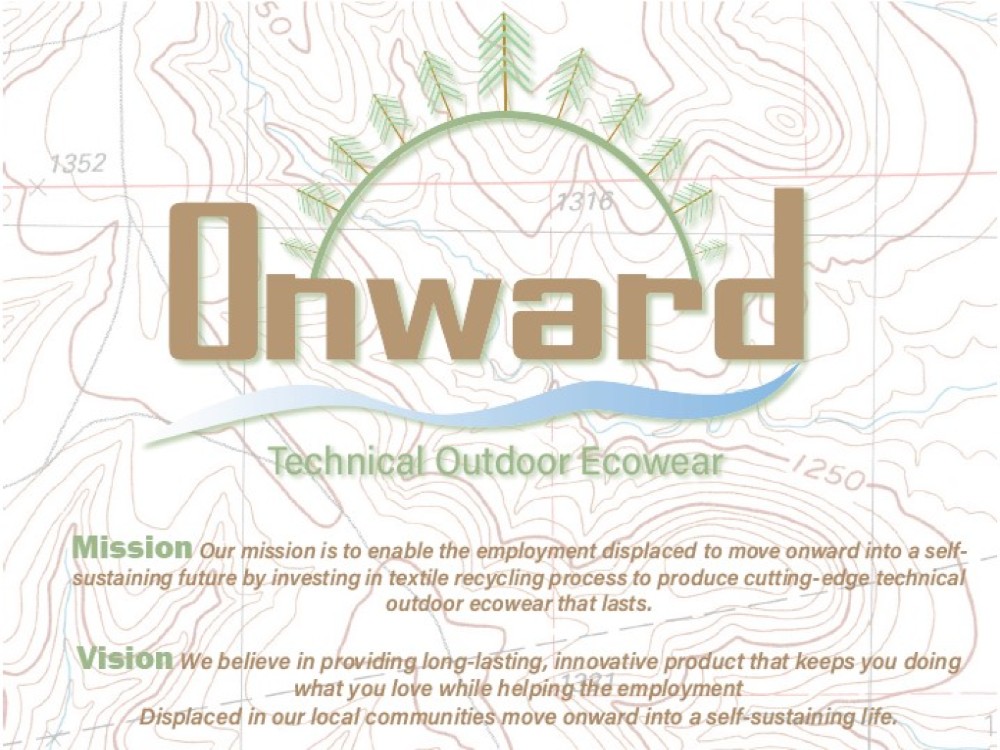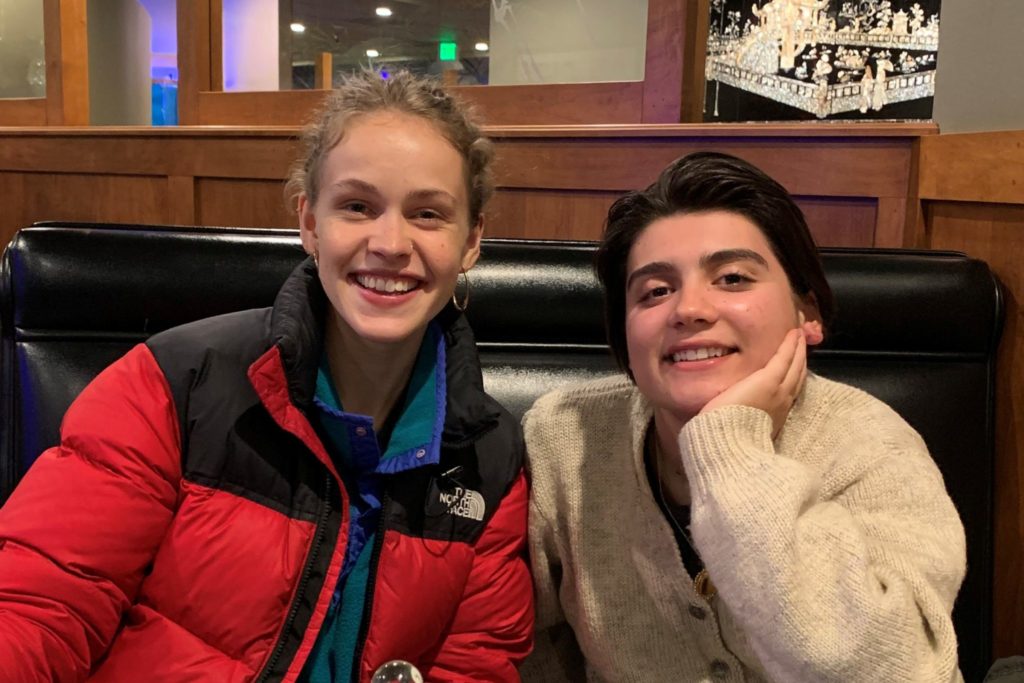
The Educators for Socially Responsible Apparel Practices (ESRAP), a non-profit organization that promotes sustainability in the apparel industry, host a Student Merchandising Competition every year. Two freshmen majoring in Colorado State University’s Apparel and Merchandising Program took on the challenge and won third place in the competition.
Cecilia Kastner and Caelan Chamberlain, now in their second year in the Department of Design and Merchandising, collaborated on the business plan after Jennifer Jeanneret, instructor and internship coordinator, invited them to participate.
The students developed a business plan that focuses on people, the planet, and profit (the triple bottom line), emphasizing responsible and inclusive business practices in a post-COVID world.

‘Onward’ project
Kastner and Chamberlain’s business, titled “Onward,” focuses on technical outdoor eco wear. Their mission is “to enable the employment displaced to move onward into a self-sustaining future by investing in textile recycling processes to produce cutting-edge technical outdoor eco wear that lasts.”
“We started edging into ideas that served the homeless population because of the rise in unemployment due to COVID-19,” said Kastner. Chamberlain and Kaster were inspired by Empowerment Plan, a nonprofit organization based in Detroit that creates apparel and production training and jobs for people residing in shelters and used this as their model for employment for Onward.
Their business plan also includes a Garment2Garment Recycled Fiber Process that up-cycles old clothing into textiles with a high fiber strength and durability. This fabric will be used to construct two technical, waterproof jackets with recycled materials.
Kastner and Chamberlain’s business proposal also describes the demographics, behavioristics, and psychographics for their target customer, the urban achiever. They also outlined a SWOT (Strengths, Weaknesses, Opportunities, Threats) analysis, a marketing strategy, and a detailed yearly income statement.
Also, new this year, Kastner and Chamberlain created a video pitch to accompany their poster submission. The video provides a quick summary of their project, mission, vision, and goals.
Up next for Onward
Both Kastner and Chamberlain discuss how this project has brought them a lasting friendship over shared interests. “We met through classes, and our mutual interest in sustainable, ethical fashion drew us together,” explained Kastner, “We both have a passion for what we’re studying, and that’s paramount for a successful case study like the ESRAP competition.”
Chamberlain agreed, “I remember asking Cecilia if she wanted to get lunch at the dining hall last year and she said yes and we literally sat for an hour and a half rambling about waste in the fashion industry and how frustrated we both were with the waste and mistreatment that occurs.”
The ESRAP project has helped solidify each student’s vision for the industry. “I think this project has kind of cemented my decision to stay in this industry,” said Chamberlain, “Because it gave me a glimpse into what my future career could be and even though it is grueling and frustrating, looking at the final product, I’m really proud.”
About ESRAP
ESRAP works to implement Corporate Social Responsibility and sustainability into the curriculum of higher educational institutions for the fashion industry. The annual student competition, in particular, aims at “empowering students to become change agents” within their industries. The organization brings together educational institutions and organizations, students and faculty, and industry partners in their shared mission. Their emphasis on collaboration makes them a leading resource for learning and understanding sustainable practices in the apparel and textile industry. ESRAP often partners with the International Textile and Apparel Association, a professional, educational association for scholars, educators, and students in the merchandising, textile, and apparel fields.
The Department of Design and Merchandising is part of CSU’s College of Health and Human Sciences.